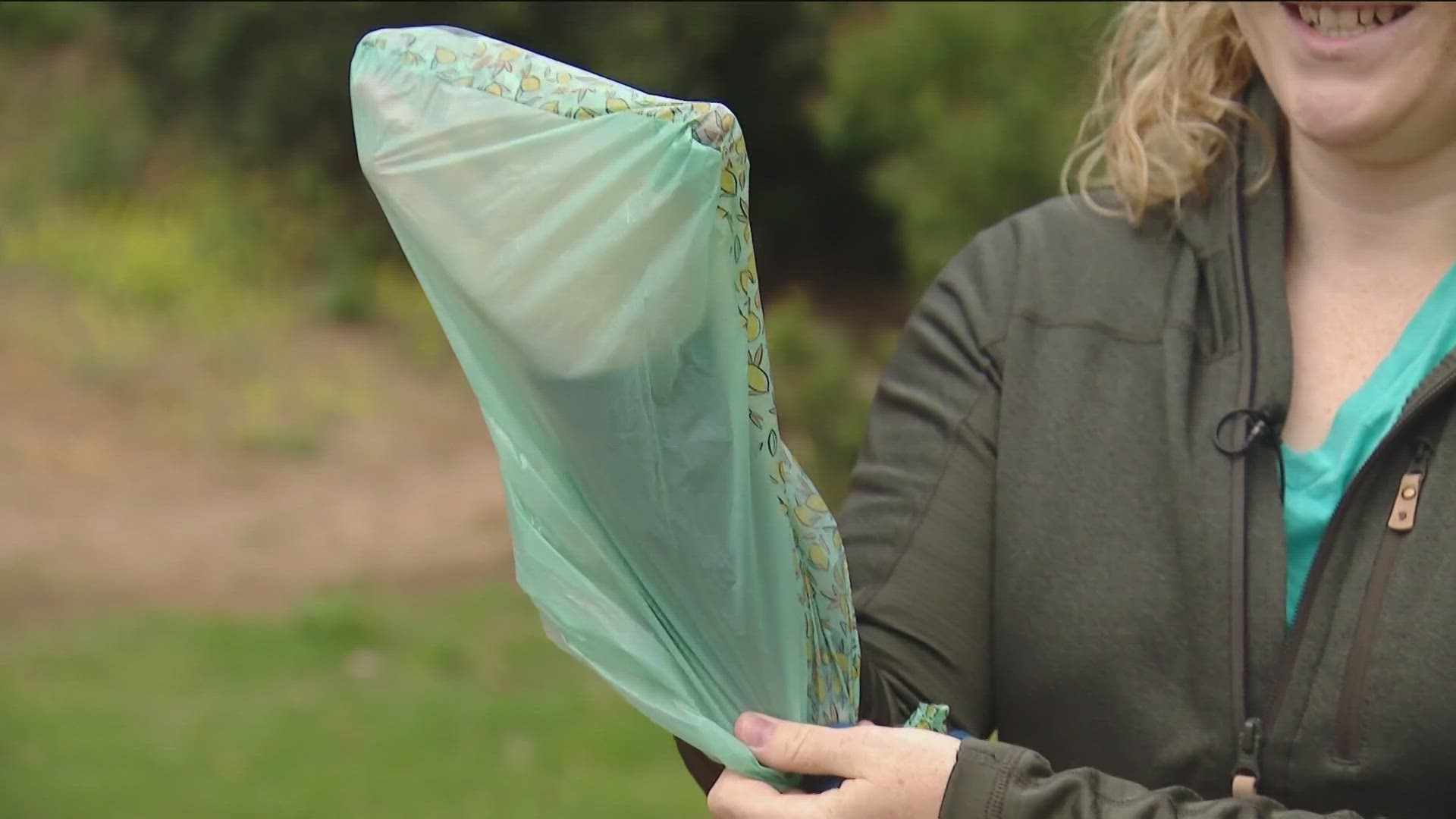SAN DIEGO — We see it in the grass, on sidewalks and sometimes we accidentally step in it. We're talking about dog poop.
Unfortunately, the left behind waste gets swept away into our waterways and leads to major health concerns for our ecosystem and even our own health.
That's why the County of San Diego has launched a new campaign to 'Keep San Diego Doody Free'.
"You know we just want to make sure that we're protecting ourselves and being responsible pet owners," said Chelsea McGimpsey with the County of San Diego for Project Clean Water.
The goal of this initiative is to continue to support the county's water quality and maintain a healthy ecosystem.
"Dog poop has a lot of bacteria in it. They have salmonella and E.coli in their intestinal tracks and that gets left on the grass. So, if your kids are playing in the grass, where the dog poop has broken down, they can get sick. Or it washes into our waterways, which ends up in either drinking water reservoirs or the water that we play in," said McGimpsey.
Chelsea also pointed out that some strains of E. coli are becoming resistant to antibiotics. That is not settling news when you think about the facts that there are roughly 600,000 different dogs in San Diego County. That equals up to about 136 million pounds of dog waste per year.
Chelsea stressed that dog waste is not fertilizer because of the high concentration of bacteria and nutrients in it.
It's a stormwater pollutant that gets compounded with other pollutions. Too much bacteria and too many nutrients are added to our soil and waterways.
The result? Poor water quality negatively affects our health and the health of our wildlife.
"When that breaks down and gets into the soil, we can actually over nourish the ground, and that can cause all sorts of different issues related to things, something called eutrophication, which is when too many nutrients enter our waterways and then it causes algae blooms. If we think about all those stinky algae blooms or when beaches have to be closed because there is toxic algae blooms, a lot of the nutrients out of dog poop can help produce those types of events," said McGimpsey.
We cannot stress enough that dog waste needs to be disposed of properly in a doggy poop bag, like this one, and placed in a trashcan. This also includes dog droppings that we find at dog parks, as well as private property. It's our duty to pick up their doody.
"Just because it's your property doesn't mean that water stays on your property. So, as it rains or you are irrigating your lawn, it can pick up and breakdown some of that dog poop and it will carry it off of your property. And if it enters a storm drain, which is those little inlets on the side of the road. Anything that enters the storm drain is released into our water without treatment," said McGimpsey.
With great pet ownership comes great responsibility my friends! So, roll up your sleeves and wrap up your hands. It's a stinky job, but we have to do to keep our county healthy and doody free.
WATCH RELATED: Second annual California State Parks week kicks off (May 2023).

